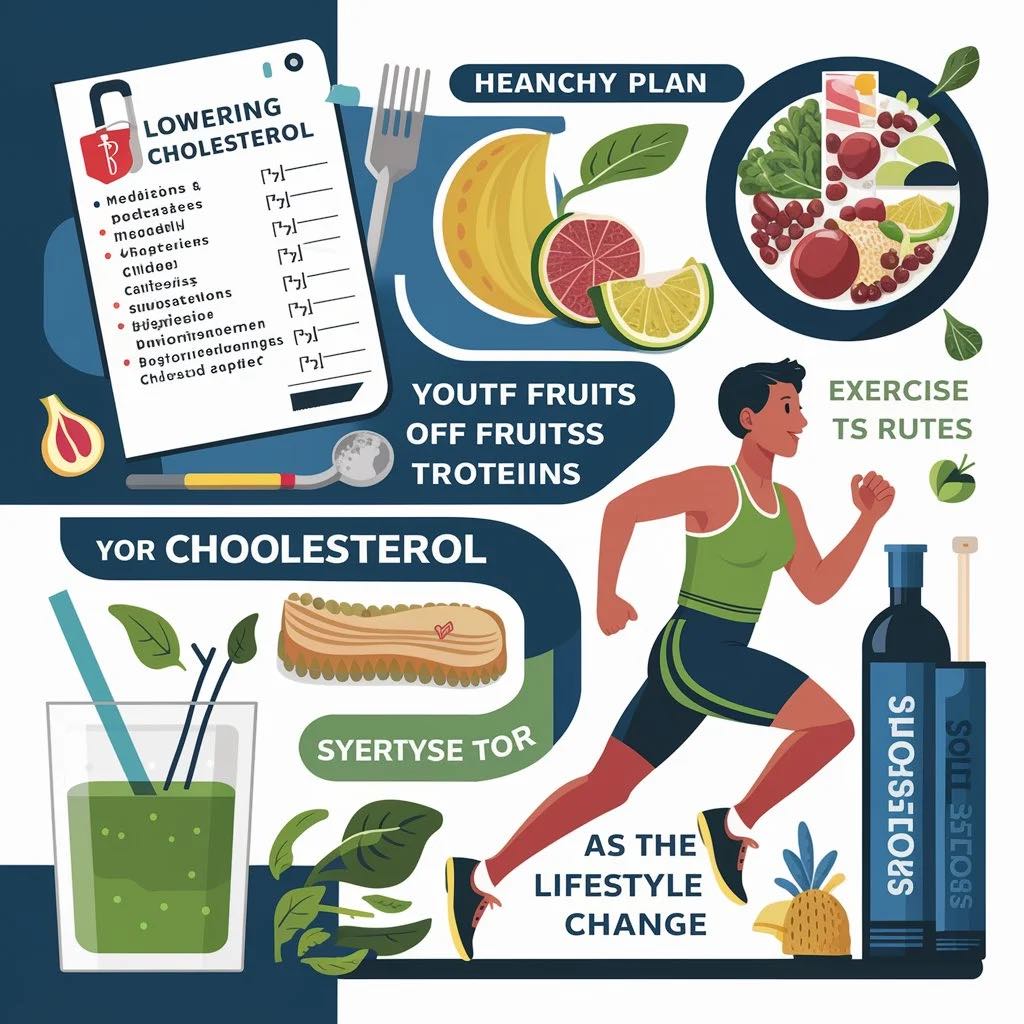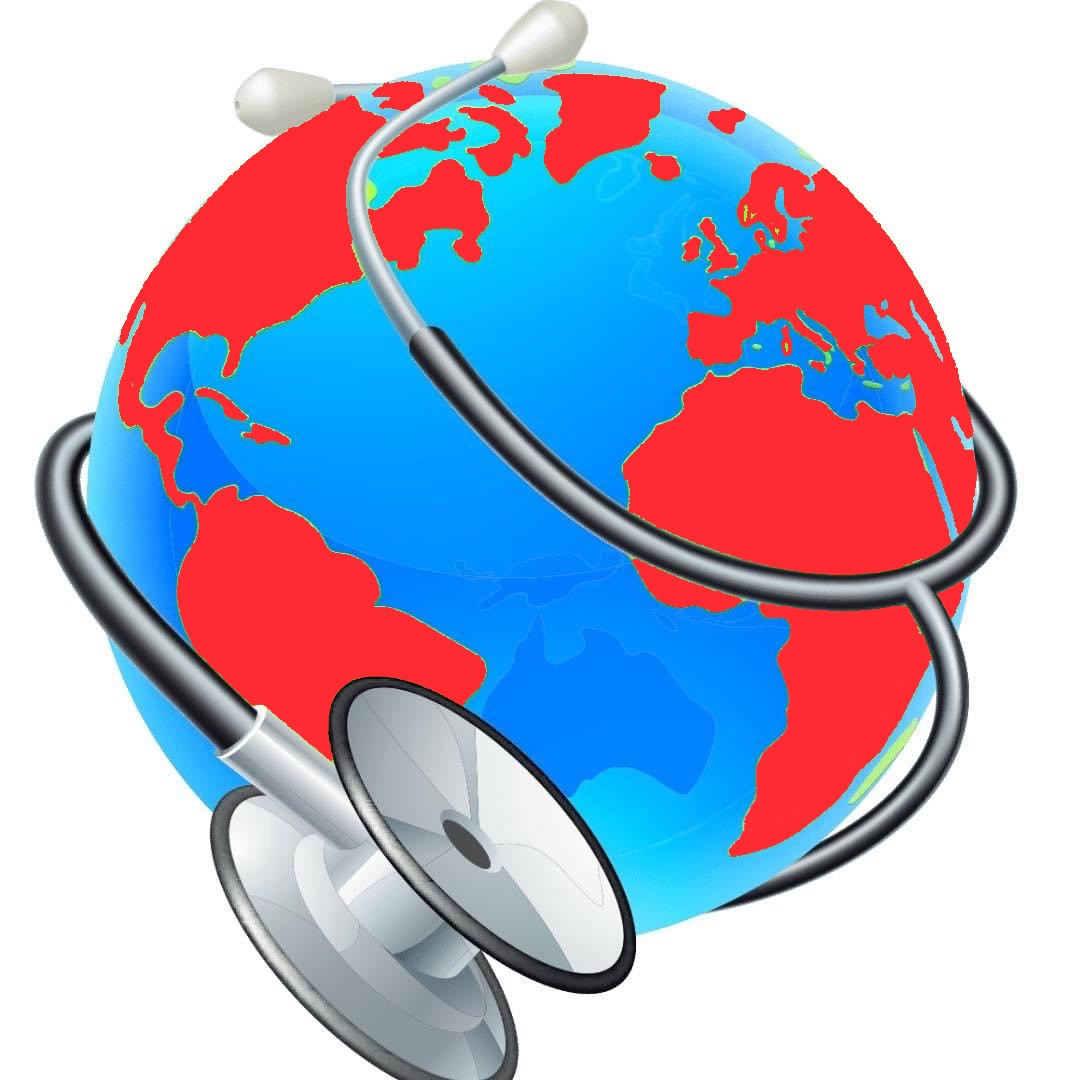
Maintaining healthy lower cholesterol levels can be difficult in today’s fast-paced society when convenience often takes priority over health. High cholesterol levels are associated with a variety of health problems, including heart disease and stroke. The good news is that you can decrease cholesterol and enhance your overall health with the appropriate tactics. This thorough guide will examine effective medicines and lifestyle adjustments to help you reach and maintain healthy cholesterol levels. High cholesterol levels can greatly raise the risk of heart disease and other health issues. Fortunately, modest lifestyle modifications can help lower cholesterol and improve general health.
1. Healthy Eating Habits
● Lude Soluble Fibre:
Muesli, barley, beans, lentils, fruits, and vegetables can assist the body in absorbing and removing cholesterol.
● Embrace omega-3s:
Incorporate fatty seafood like salmon, mackerel, and sardines, or go plant-based with flaxseeds, chia seeds, and walnuts.
● Avoid saturated and trans fats:
Avoid fried meals, processed meats, and baked products high in harmful fats. Opt for your heart
● Hydration
Drink lots of water throughout the day. Limit your intake of sugary beverages and instead drink water, herbal tea, or infused water.
2. Physical activity.
● Diversify your workouts:
Change your workout program to keep things new and prevent monotony. Try new activities like hiking, dancing, or group fitness programs.
● Strength Training:
Incorporate strength training activities into your workout routine to increase muscle growth, boost metabolism, and enhance cardiovascular health.
3. Weight Management.
● Set realistic goals:
Set weight reduction or maintenance goals and monitor your progress regularly. Celebrate milestones along the road to keep yourself motivated and focused.
● Stay accountable:
Maintain accountability for your health by maintaining a food journal, recording your physical activity, and getting help from friends, family, or internet forums.
Prescription Medications for Lowering Cholesterol:
Prescription medications can help decrease cholesterol levels when lifestyle improvements are insufficient. In such cases, healthcare practitioners may recommend drugs to assist in the control of cholesterol. Statins, which inhibit the enzyme required by the liver to create cholesterol, and bile acid sequestrants, which bind to bile acids in the intestines and prevent them from being reabsorbed into the circulation, are two examples of popular drugs.
Five Habits to Lower Cholesterol:
To summarise, doing five essential practices can help lower cholesterol and minimize your risk of heart disease:
1. A diet high in fruits, vegetables, whole grains, and lean protein.
2. Engaging in frequent physical exercise.
3. Maintaining a healthy body weight.
4. Avoid smoking and heavy alcohol intake.
5. Follow your doctor’s treatment plan, which includes medication and lifestyle adjustments.
Effective Lifestyle Changes to Lower Cholesterol Naturally
1. Understanding cholesterol.
Before getting into cholesterol-lowering treatments, it’s important to understand the foundations. Understanding the differences between LDL and HDL cholesterol and their effects on heart health is the foundation for effective cholesterol control.
2. Increased Fibre Intake
Soluble fiber is an important factor in cholesterol lowering. To help decrease LDL cholesterol levels, include soluble fiber-rich foods like oats, barley, beans, lentils, fruits, and vegetables in your regular diet.
3. Regular exercise regimen
Physical exercise is vital for maintaining healthy cholesterol levels. To increase HDL cholesterol levels and enhance overall cardiovascular health, do at least 30 minutes of moderate-intensity exercise most days.
4. Maintaining a Healthy Weight.
Maintaining a healthy weight through balanced meals and frequent exercise is essential for managing cholesterol. Even small weight loss can result in considerable cholesterol improvements.
5. Smoke Cessation
Smoking harms cholesterol levels and general heart health. Quitting smoking is critical for lowering the risk of heart disease and improving cholesterol levels.
6. Moderate Alcohol Consumption
While moderate alcohol use may have some cardiovascular advantages, too much might raise triglyceride levels and lead to high cholesterol. To improve heart health, limit your alcohol consumption.
7. Choosing heart-healthy cooking methods
Cooking processes can have an impact on how much cholesterol food contains. To reduce bad fats, use heart-healthy cooking methods such as baking, grilling, steaming, and roasting.
8. Considering Medications if necessary
When lifestyle modifications are insufficient, drugs such as statins may be administered to control cholesterol. Consult with a healthcare practitioner to establish the best treatment approach.
9. Regular cholesterol monitoring.
Regular cholesterol testing is vital for determining the effectiveness of lifestyle changes and drug regimes. Create a monitoring schedule in consultation with healthcare providers to measure progress and make informed changes as necessary.
10. Stress-Management Techniques
Chronic stress can lead to bad habits that affect cholesterol levels. Include stress-reduction strategies like meditation, deep breathing exercises, yoga, or nature walks.
Lowering cholesterol levels is critical to reducing the risk of heart disease and stroke.
Here’s a mix of beneficial prescription drugs and lifestyle modifications:
● Statins:
These are the most often given cholesterol-lowering drugs. They act by inhibiting the enzyme in the liver that produces cholesterol. Examples are Lipitor (atorvastatin), Zocor (simvastatin), and Crestor (rosuvastatin).
● Ezetimibe (Zetia):
This drug reduces cholesterol absorption from the gut. It can be taken alone or in conjunction with statins.
● PCSK9 inhibitors:
These medications assist the liver to eliminate LDL cholesterol from the blood by inhibiting a protein known as PCSK9. Examples include Repatha (evolocumab) and Praluent (alirocumab).
● Bile acid sequestrants:
These medications attach to bile acids in the intestines and prevent them from being reabsorbed into the circulation. This causes the liver to utilize more cholesterol to produce bile acids, lowering cholesterol levels. Examples are cholestyramine (Questran) and colesevelam (Welchol).
● Fibrates:
primarily reduce triglyceride levels but can also raise HDL cholesterol (the “good” cholesterol) while decreasing LDL cholesterol. Examples include gemfibrozil (Lopid) and fenofibrate (Tricor).
● Niacin:
(nicotinic acid) reduces LDL cholesterol and triglycerides while increasing HDL cholesterol. However, it can induce adverse effects such as flushing and liver damage. Thus, it is often taken only when other therapies fail.
Changes in Lifestyle
You can alter your lifestyle in several ways to increase HDL cholesterol and decrease LDL cholesterol. Among them are:
Eating a balanced diet:
A diet rich in fruits, vegetables, and whole grains is low in trans and saturated fats and high in cholesterol-lowering nutrients. Red meat, sugar-filled beverages, and processed foods should all be consumed in moderation.
Regular exercise:
Exercise helps increase HDL cholesterol and decrease LDL cholesterol. On most days of the week, try to get at least 30 minutes of moderate-intensity exercise.
Losing weight:
Reducing your weight, even a little bit, can help lower cholesterol diet if you are obese or overweight.
Give up smoking:
Smoking raises your risk of heart disease and destroys your blood vessels. Quitting smoking is one of the most beneficial things you can do to improve your cholesterol levels.
Managing stress:
Stress can cause high blood pressure and cholesterol levels. Find healthy stress-management strategies, such as exercise, relaxation methods, or spending time outside.
Medications:
Your doctor may recommend medication if lifestyle measures are insufficient to decrease cholesterol. There are a variety of cholesterol medicines available, including:
Statins:
Statins are the most often prescribed cholesterol medicine. They operate by preventing your liver from producing LDL cholesterol.
Ezetimibe:
Ezetimibe works by inhibiting the absorption of cholesterol in your gut.
Bile acid sequestrants:
Bile acid sequestrants attach to cholesterol in the gut, preventing it from being absorbed into the circulation.
PCSK9:
PCSK9 inhibitors are a newer type of cholesterol medicine that assists your liver in removing LDL cholesterol from your bloodstream.
Additional tips:
Read food labels:
carefully. Pay attention to the quantity of saturated and trans fat in your meals.
Choose lean protein sources:
Select lean protein sources. Instead of eating red meat, choose lean protein alternatives like fish, chicken, and legumes.
Cook using healthy oils:
When cooking, use healthy oils like olive or canola.
Increase your soluble fiber intake:
Soluble fiber may help decrease LDL cholesterol. Oatmeal, beans, and psyllium husk are good sources of soluble fiber.
You may lower your cholesterol levels and minimize your risk of heart disease and stroke by changing your lifestyle and using medication if needed.
Conclusion:
Good lifestyle behaviors such as nutrition, exercise, weight control, and ldl cholesterol reduction should be included to lower cholesterol levels naturally. By adopting these tactics into your daily routine, you can reduce your cholesterol, heart disease risk, and general health and well-being. Remember to check your doctor before making any major changes to your diet or exercise routine, especially if you have pre-existing health concerns or are using medicines. You can regulate your cholesterol levels and live a heart-healthy life with effort and determination.
